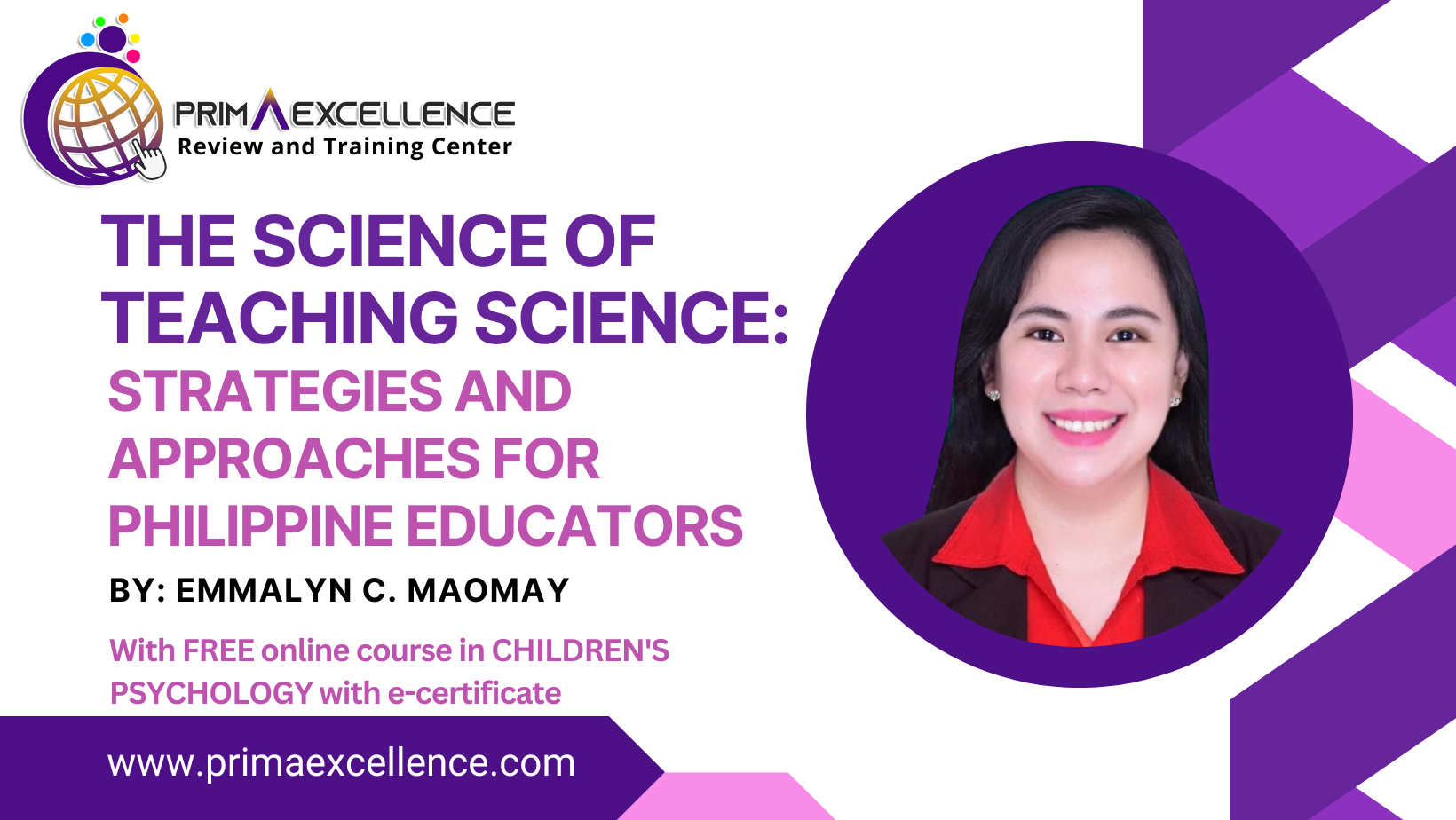THE SCIENCE OF TEACHING SCIENCE: STRATEGIES AND APPROACHES FOR PHILIPPINE EDUCATORS

About Course
This course is designed for teachers who are passionate about educating and inspiring the next generation of scientists.
As science teacher, you play a critical role in helping students develop a deep understanding of scientific concepts, build scientific skills, and prepare for future careers in science, technology, engineering, and math (STEM).
In this course, we will explore the essential components of effective science teaching, including curriculum planning, instructional strategies, assessment and evaluation, and classroom management.
Through a variety of interactive and engaging activities, you will learn how to create a student-centered classroom environment that fosters inquiry, critical thinking, and scientific literacy. You will also have the opportunity to collaborate with other educators and share best practices for teaching secondary science.
Whether you are new or just starting out in this profession or already an experienced educator looking to enhance your teaching skills, this course will provide you with the tools and knowledge needed to help your students succeed in science and beyond.
Course Title: THE SCIENCE OF TEACHING SCIENCE: STRATEGIES AND APPROACHES FOR PHILIPPINE EDUCATORS
Course Objectives: By the end of this course, participants should be able to:
- Understand the Philippine K-12 Science Curriculum and its implications for teaching science in secondary schools
- Apply teaching strategies that promote student engagement and active learning in science
- Create effective lesson plans that integrate the use of technology and other instructional materials
- Manage their classrooms effectively to create a positive learning environment
- Use a variety of assessment strategies to evaluate student learning and inform instructional decision-making
Course Outline:
Module 1: Understanding the Philippine K-12 Science Curriculum
- Overview of the K-12 Science Curriculum in the Philippines
- Science content standards and performance standards
- Implications of the K-12 Science Curriculum for teaching secondary science
Module 2: Teaching Strategies for Secondary Science
- Active learning strategies for teaching science
- Inquiry-based learning and problem-based learning
- The use of technology and other instructional materials in teaching science
Module 3: Science Pedagogies
- Learning Theories
- Learning Models
Module 4: Classroom Management for Secondary Science
- Creating a positive learning environment
- Effective communication with students
- Classroom discipline and behavior management strategies
Module 5: Assessment in Secondary Science
- The role of assessment in teaching and learning
- Formative and summative assessment strategies
- Using assessment data to inform instructional decision-making
Course Content
Introduction
-
Course Instructor
00:00 -
Motivations for Learning
00:00 -
How Do Students Perceive Science?
00:00


